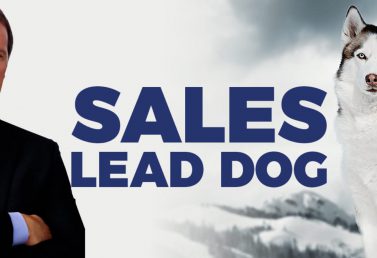How to Never Hire a Bad Salesperson Again
When it comes to hiring “hunter” sales people, your basic interview isn’t always the best gauge of prospect’s talent. Most companies have been burned by hiring a salesperson who said all the right things but then never executed or met expectations. So, how do you weed out the non-starters and find the gems?
Christopher Croner, Principal of SalesDrive, LLC, a company that helps businesses perfect their salesperson hiring process, offers us some tools. His book, Never Hire a Bad Salesperson Again as well as SalesDrive’s online assessment help identify sales candidates with three non-teachable traits essential for success as a hunter salesperson.
As Christopher says, “Sales candidates are very, very good at portraying themselves well . . . . In terms of the assessment itself, we designed it to eliminate the whole issue of faking.”
The assessment is meant to be used early in the hiring process and helps employers develop more in-depth and stronger interview questions.
From Psychology to Sales
Christopher’s passion for trying to understand the psyche of the “highest performer” began when he was a PhD student in psychology. With the help of an intern director from the Center for Creative Leadership, a major consulting firm here in the United States, he was able to develop his own approach to deliver psychological consultation to business management.
After receiving his PhD, Christopher focused on the process of executive assessment at a firm called Whitmer and Associates.
The Three Non-Teachable Traits
According to Christopher, there are three weighted, non-teachable traits companies should look for in a sales candidate.
- Need for achievement. This is the person who wants to do well simply to do well. He/she pursues excellence for the sake of excellence and always sets the bar higher and higher.
- Competitiveness. This person wants two things: (a) to be the best person on the team and constantly compares his or her performance to others and (b) wants to win over the client or customer to his/her point of view.
- Optimism. This person is absolutely certain that he or she will succeed and is resilient when faced with rejection.
These in combination, Christopher says, equal what companies ultimately want in a sales person—drive. In fact, SalesDrive’s online assessment is different from others in that it is designed specifically for sales. It’s the only one that measures drive.
The Assessment
SalesDrive’s assessment uses forced-choice questions designed specifically to eliminate faking. For example, instead of yes or no questions, the assessment lists three positive statements and asks the candidate, “Which is most like you?” and “Which is least like you?”
Once companies have the answers to these types of questions, it can be much easier to tailor interview questions for the individual candidate.
What Can Be Taught?
According to Christopher, you can’t change the three non-teachable traits. However, you can use the assessment tool to determine confidence, persuasion, relationship skills, and organization.
His advice to employers is to “Hire for the non-teachable piece. Then look at the pieces that can be developed.” Using SalesDrive’s assessment in this way puts the candidate in charge of his/her own development and creates a good working relationship. So now . . . it’s a fit.
For more on Christoper and SalesDrive’s books and online assessment tools, listen to his interview on the Sales Lead Dog podcast.

